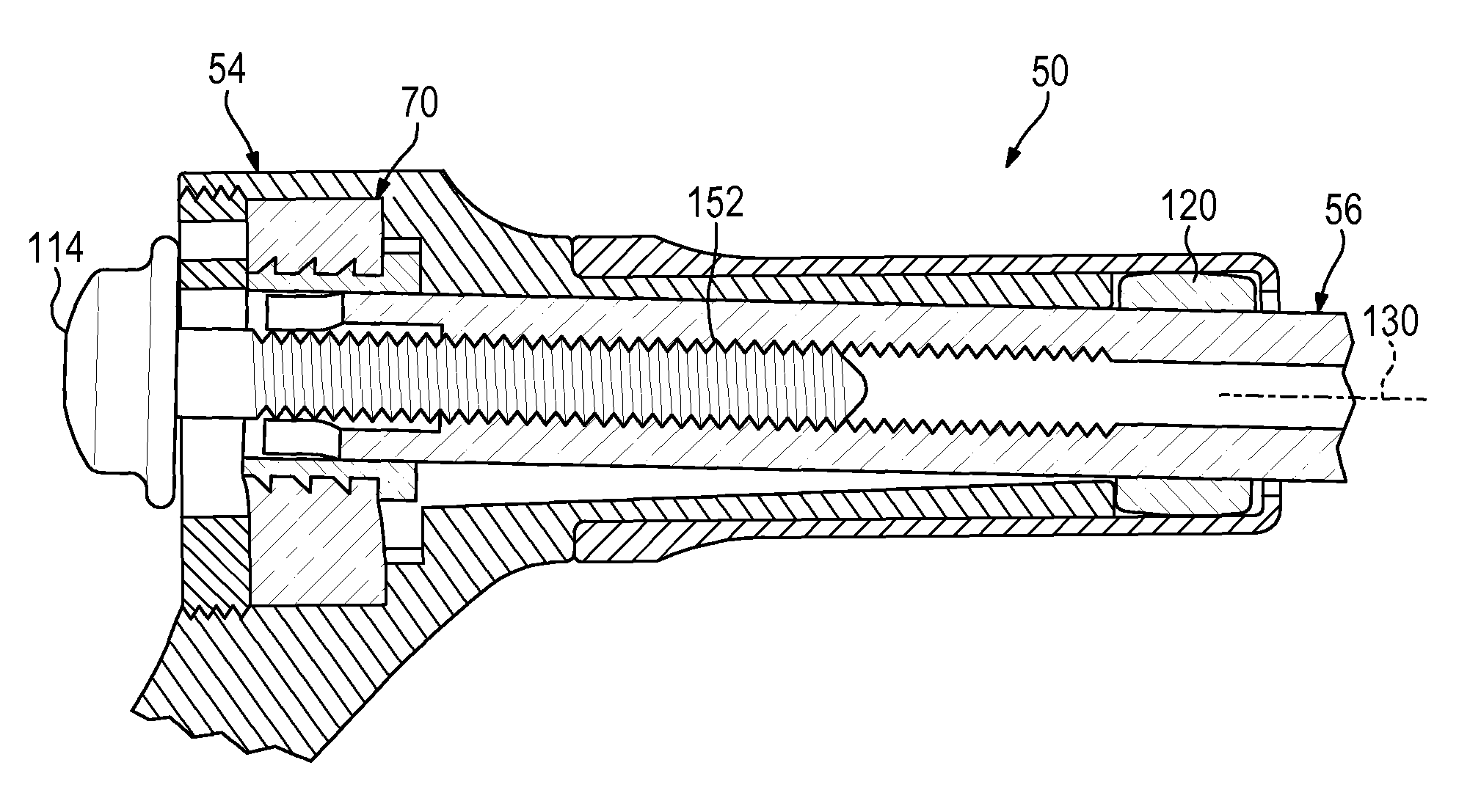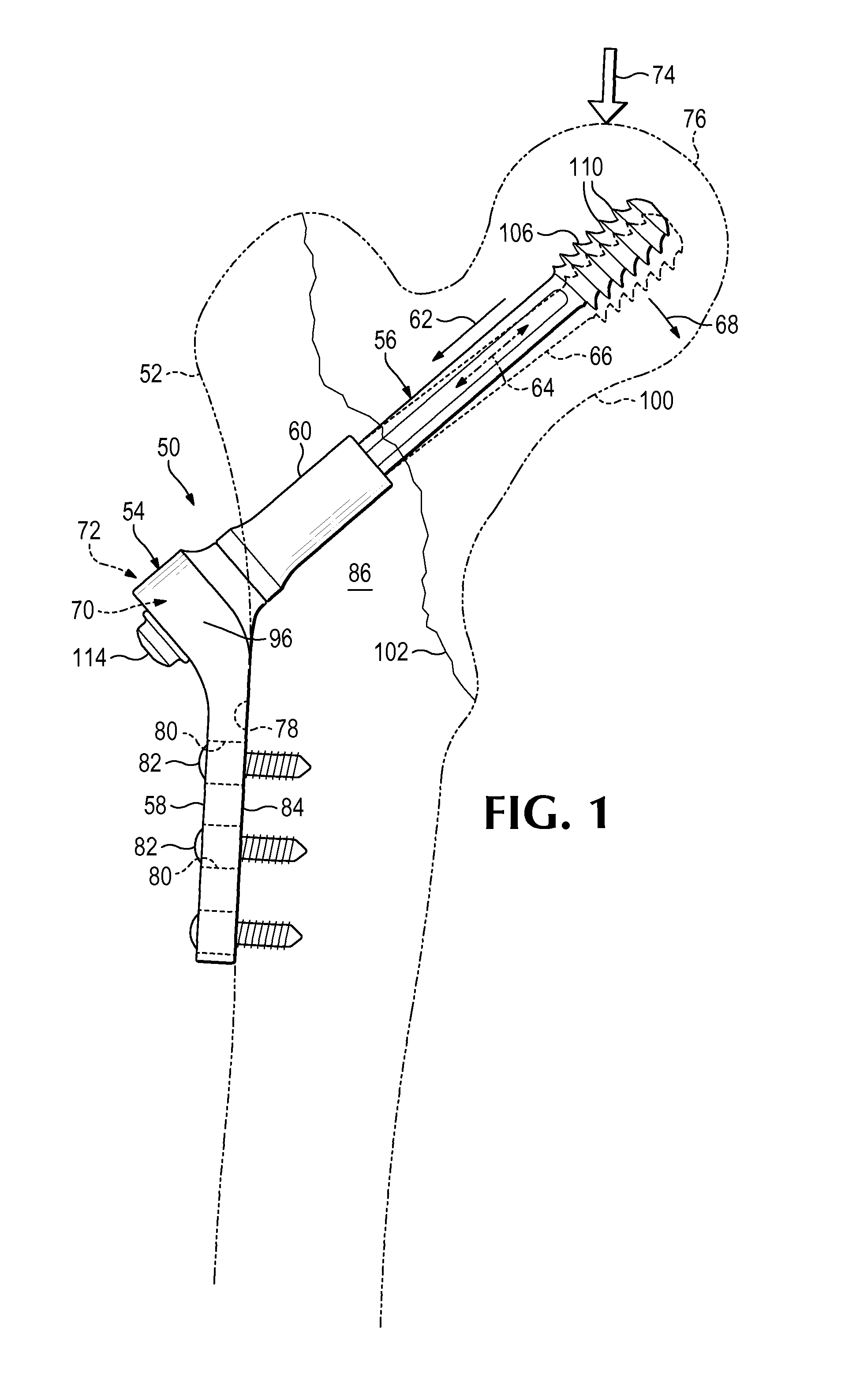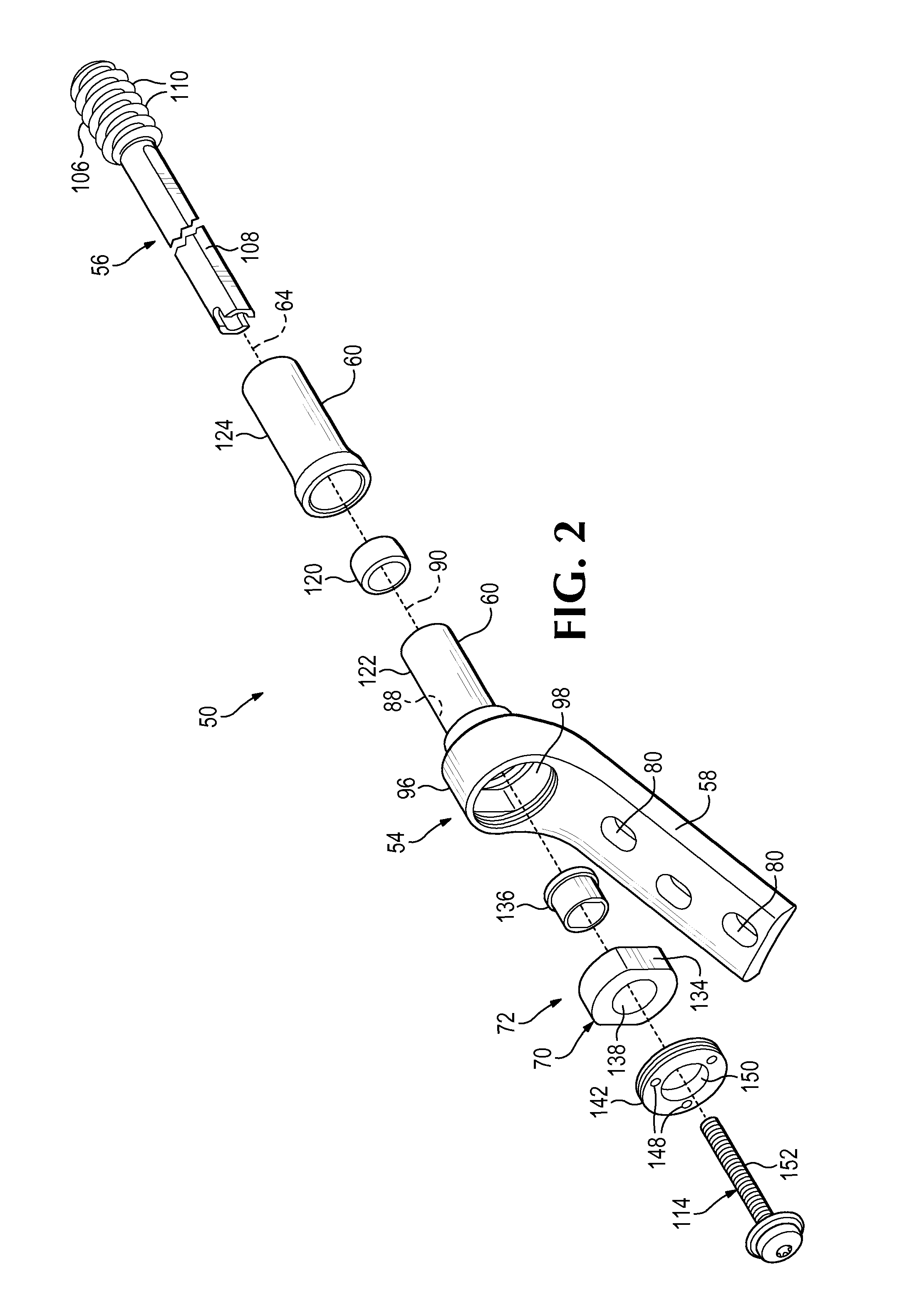Plate-based compliant hip fixation system
a plate-based, compliant technology, applied in the field of plate-based compliant hip fixation system, can solve the problems of femoral head damage, fixation device not always providing a successful outcome,
- Summary
- Abstract
- Description
- Claims
- Application Information
AI Technical Summary
Benefits of technology
Problems solved by technology
Method used
Image
Examples
example 1
Hip Fixation System with Swaged Barrel Portion
[0074]This example describes an exemplary hip fixation system 160 with a one-piece barrel portion 60 having a swaged end 162 that captures a bearing element 120 inside the barrel portion; see FIGS. 6 and 7.
[0075]Hip fixation system 160 may be structured generally as described above for system 50 (see Section I). However, barrel portion 60 may be generated initially with a cylindrical flange 164 (shown in phantom outline in FIG. 6) that is sized to receive bearing element 120. A lip portion of flange 164 then may be deformed, such as rolled radially inward, to prevent removal of the bearing element from channel 88.
[0076]Barrel portion 60 and bearing element 120 may cooperate to prevent rotation of fixation element 56 about its long axis and to restrict angular motion of the fixation element to one plane of a set of three mutually orthogonal planes (see FIG. 7). Barrel portion 60 may define one or more inside flats 166 that contact one or ...
example 2
Hip Fixation System Having a Perforated Compliant Member
[0077]This example describes exemplary compliant hip fixation systems 180, 190 having a perforated compliant member 192 or 194 that contacts the fixation element; see FIGS. 8-10.
[0078]Fixation systems 180 and 190 may have any combination of the elements and features described elsewhere herein. For example, each system may have a compression screw and a retainer (see FIGS. 2 and 4), which are not shown here to simplify the presentation.
[0079]Compliant member 192 may define a central opening 196 in which fixation element 56 can slide. The compliant member may have a low coefficient of friction with the fixation element, which allows the compliant member and fixation element to slideably contact one another. For example, compliant member 192 may be formed of metal or smooth, relatively hard plastic. The wall of central opening 196 may define flats 198 that cooperate with flats 108 of fixation element 56.
[0080]Compliant member 192 ...
example 3
Hip Fixation System with a Barrel Portion as a Bearing Element
[0082]This example describes an exemplary compliant hip fixation system 220 having a barrel portion 60 with an inside wall region 222 that slideably contacts a fixation element 56; see FIG. 11.
[0083]Fixation system 220 may be structured generally as described above for hip fixation system 180 (see FIGS. 8 and 10). However, bearing element 120 may be omitted. Instead, fixation element 56 may movably contact wall region 222 formed integrally with or fixed in relation to barrel portion 60 and, optionally, formed integrally with mounting portion 58. Wall region 222 may (or may not) be shaped to restrict rotation of fixation element 56 about its long axis and / or to restrict angular motion of the fixation element to one plane of a set of three mutually orthogonal planes.
PUM
 Login to View More
Login to View More Abstract
Description
Claims
Application Information
 Login to View More
Login to View More - R&D
- Intellectual Property
- Life Sciences
- Materials
- Tech Scout
- Unparalleled Data Quality
- Higher Quality Content
- 60% Fewer Hallucinations
Browse by: Latest US Patents, China's latest patents, Technical Efficacy Thesaurus, Application Domain, Technology Topic, Popular Technical Reports.
© 2025 PatSnap. All rights reserved.Legal|Privacy policy|Modern Slavery Act Transparency Statement|Sitemap|About US| Contact US: help@patsnap.com



